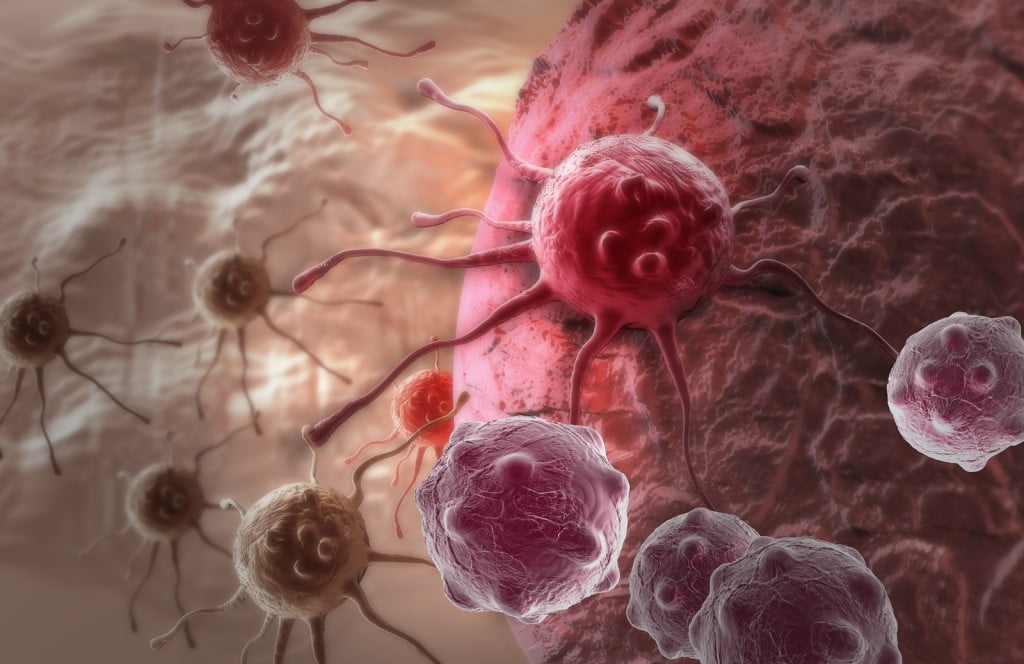Anti-stress and anti-inflammatory drugs could help the body fight cancer, a new Israeli study has found. This specific drug regimen, administered prior to and after surgery, significantly reduces the risk of post-surgical cancer recurrence.
These medications – a combination of a beta blocker (which relieves stress and high blood pressure) and an anti-inflammatory – may also improve the long-term survival rates of patients. The treatment is safe, inexpensive — two medications similar in price to aspirin — and easily administered to patients without contraindications.
The study, conducted at Tel Aviv University, could give new hope to many cancer patients, as most cancer-related deaths are the result of post-surgical metastatic recurrence (the spread of cancer). In metastasis, cells of primary tumors travel to other parts of the body, where they often proliferate into inoperable, ultimately fatal growths.
According to TAU’s Prof. Shamgar Ben-Eliyahu, who led the study, “We’ve taken an unconventional approach, deviating from the current medical dogma that refrains from intervening during the short period surrounding a cancer surgery — no chemo, radio or immune therapy for at least three weeks before or after surgery. Even within the medical establishment, we encountered some levels of disbelief and antagonism. But after conducting ample studies in animal models of cancer, and reviewing the medical literature, we came to the firm conclusion that maybe this is the most important period in the prevention of cancer recurrence.”
SEE ALSO: Karate Kids Kick Cancer By Channeling Stress, Fear And Pain With Martial Arts
For the study, 38 breast cancer patients at Israel’s Sheba Medical Center, Kaplan Medical Center and Rabin Medical Center were given a pharmacological treatment — Deralin (used to reduce blood pressure and anxiety) and Etopan (used to reduce inflammation) — five days before their surgeries, the day of their surgeries and five days after their surgeries. Blood and tumor tissue samples were then analyzed using whole genome gene expression profiling to identify all the RNAs expressed in malignant cells and leukocytes.
“We found that the drugs were very efficient in reducing biomarkers of metastatic processes,” Ben-Eliyahu said in a statement. “For example, we found that the drug treatment reverses EMT — the process that tumor cells go through to slip out of the primary tumor and enter another organ. It is a crucially important step in the metastatic process. We also looked at indices related to the immune system and were able to improve immune competence and reduce inflammation with the drugs.”
SEE ALSO: How Elephants’ Genes Are Fighting Cancer In Humans
The research team has conducted a similar study, which has not yet been published, on colorectal cancer patients and has found similar results. They’re currently considering a larger-scale clinical trial to establish the clinical long-term beneficial effects of this treatment. Says Ben-Eliyahu: “Positive outcomes should validate this treatment and lead to its becoming available for most cancer patients.”
The research was led by Prof. Shamgar Ben-Eliyahu of TAU’s School of Psychological Sciences and Sagol School of Neuroscience in collaboration with Prof. Steven Cole of UCLA; Prof. Oded Zmora of Sheba Medical Center, Tel Hashomer; Prof. Eran Sharon of Rabin Medical Center, Beilinson; and Prof. Tanir Ellweiss of Kaplan Medical Center. It was published in Clinical Cancer Research.
Related posts

Israeli Medical Technologies That Could Change The World

Harnessing Our Own Bodies For Side Effect-Free Weight Loss

Missing Protein Could Unlock Treatment For Aggressive Lung Cancer






Facebook comments